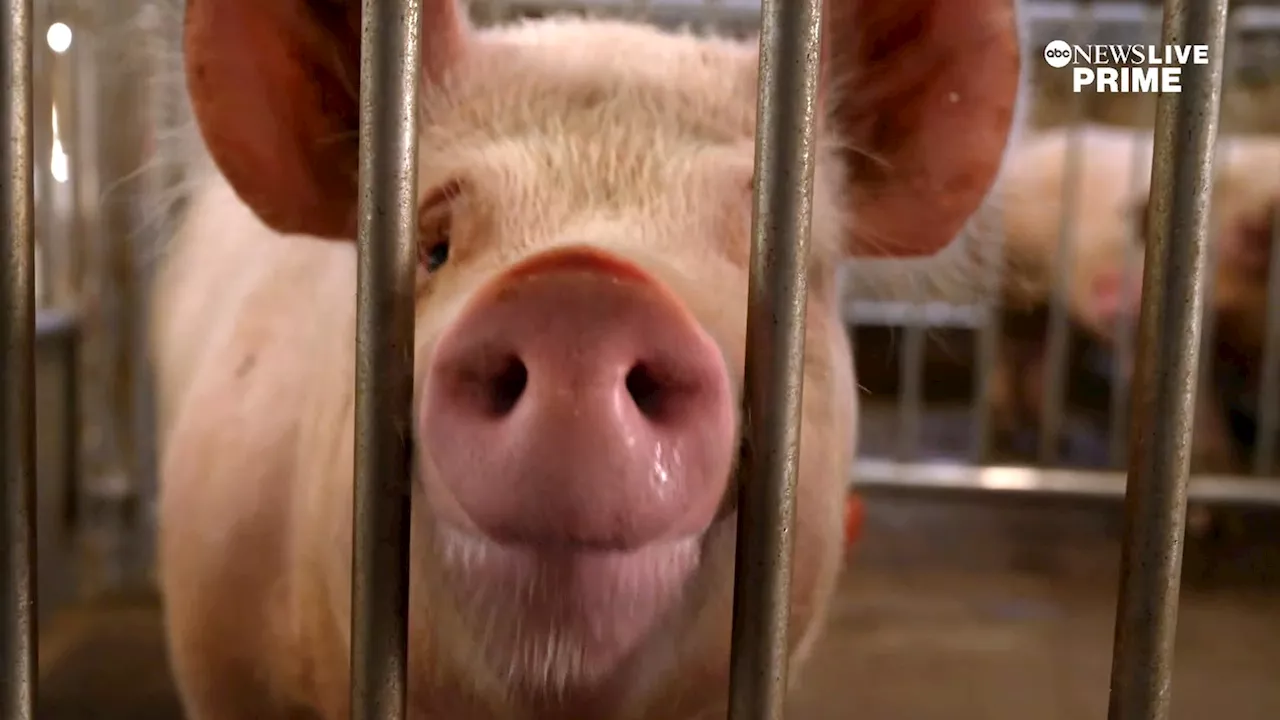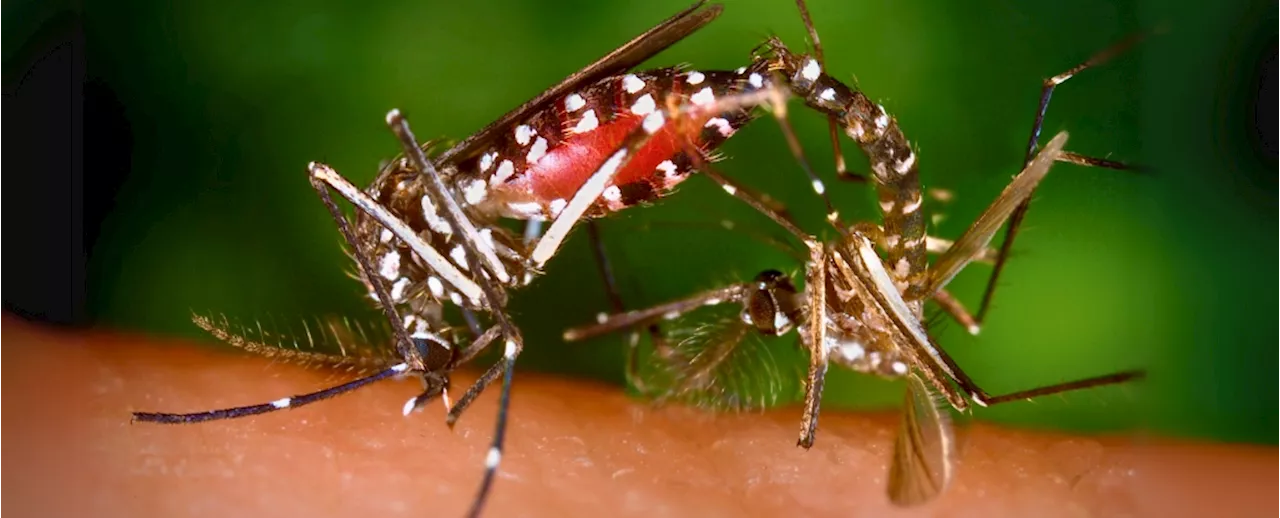Australian researchers have developed a novel method for controlling mosquito populations using genetically modified male mosquitoes. The technique involves modifying male mosquitoes to produce toxic semen, which kills females after mating. This approach, known as intragenerational biocontrol, is more effective than traditional methods of genetic control that rely on sterilization and offers a promising solution for reducing disease transmission.
Scientist Sam Beach from Australia's Macquarie University said the method"could work as quickly as pesticides without also harming beneficial species".
"We still need to implement it in mosquitoes and conduct rigorous safety testing to ensure there are no risks to humans or other non-target species," he said. This could be done through so-called"conditional expression" techniques, which use chemicals or other biological triggers to turn specific genes on or off at will.
Current mating-based methods of genetic biocontrol , function by affecting the viability or sex ratio of the offspring of subsequent generations. However, mated females persist in the target area and can continue to cause harm . Intragenerational biocontrol , such as TMT, directly affects the fitness of mated females, thereby rapidly reducing the harm caused by the target population.
Genetic Engineering Mosquito Control Pest Control Biocontrol Disease Transmission
United States Latest News, United States Headlines
Similar News:You can also read news stories similar to this one that we have collected from other news sources.
 Genetically Modified Pig Kidney Transplanted into First HumanTowana Looney, a 53-year-old grandmother from Alabama, received a kidney from a genetically modified pig, marking the first time such a transplant was performed on a living person. Looney's immune system rejected human kidneys, making this experimental procedure her only option. While the procedure offers hope for patients with limited organ options, it also sparks ethical concerns about animal welfare and potential virus transmission.
Genetically Modified Pig Kidney Transplanted into First HumanTowana Looney, a 53-year-old grandmother from Alabama, received a kidney from a genetically modified pig, marking the first time such a transplant was performed on a living person. Looney's immune system rejected human kidneys, making this experimental procedure her only option. While the procedure offers hope for patients with limited organ options, it also sparks ethical concerns about animal welfare and potential virus transmission.
Read more »
 First Healthy Patient Receives Genetically Modified Pig KidneyTowana Looney, a patient with kidney failure, has become the first otherwise healthy person to receive a transplant of a genetically modified pig kidney. This groundbreaking procedure offers hope for alleviating the organ shortage.
First Healthy Patient Receives Genetically Modified Pig KidneyTowana Looney, a patient with kidney failure, has become the first otherwise healthy person to receive a transplant of a genetically modified pig kidney. This groundbreaking procedure offers hope for alleviating the organ shortage.
Read more »
 Genetically modified pigs offer hope for human transplant organ shortageABC News visits scientists raising pigs with genetically modified organs.
Genetically modified pigs offer hope for human transplant organ shortageABC News visits scientists raising pigs with genetically modified organs.
Read more »
 Genetically Modified Mosquitoes Show Promise as Malaria Vaccine DeliverersResearchers at Leiden University Medical Center have developed a novel malaria vaccine delivery method using genetically modified mosquitoes. The study found that mosquitoes infected with modified malaria parasites could effectively vaccinate humans against the disease, providing significant protection against infection.
Genetically Modified Mosquitoes Show Promise as Malaria Vaccine DeliverersResearchers at Leiden University Medical Center have developed a novel malaria vaccine delivery method using genetically modified mosquitoes. The study found that mosquitoes infected with modified malaria parasites could effectively vaccinate humans against the disease, providing significant protection against infection.
Read more »
 Genetically Modified Mosquitoes Offer Promising Malaria Vaccine DeliveryResearchers at Leiden University Medical Center, with support from the Bill & Melinda Gates Foundation, have developed a novel malaria vaccine delivery method using genetically modified mosquitoes. The study involved engineering malaria parasites to halt development in the human body, priming the immune system without causing full infection. Mosquitoes carrying these modified parasites then bit human volunteers in a controlled trial. The results demonstrated high efficacy, with eight out of nine participants receiving bites from mosquitoes carrying the GA2 parasite being protected against malaria infection.
Genetically Modified Mosquitoes Offer Promising Malaria Vaccine DeliveryResearchers at Leiden University Medical Center, with support from the Bill & Melinda Gates Foundation, have developed a novel malaria vaccine delivery method using genetically modified mosquitoes. The study involved engineering malaria parasites to halt development in the human body, priming the immune system without causing full infection. Mosquitoes carrying these modified parasites then bit human volunteers in a controlled trial. The results demonstrated high efficacy, with eight out of nine participants receiving bites from mosquitoes carrying the GA2 parasite being protected against malaria infection.
Read more »
 Genetically Modified Mosquitoes Show Promise in Malaria VaccinationA new study from Leiden University Medical Center demonstrates the effectiveness of using genetically modified mosquitoes to deliver malaria vaccines. The 'flying vaccinators' carry modified parasites that stimulate the immune system without causing illness.
Genetically Modified Mosquitoes Show Promise in Malaria VaccinationA new study from Leiden University Medical Center demonstrates the effectiveness of using genetically modified mosquitoes to deliver malaria vaccines. The 'flying vaccinators' carry modified parasites that stimulate the immune system without causing illness.
Read more »
